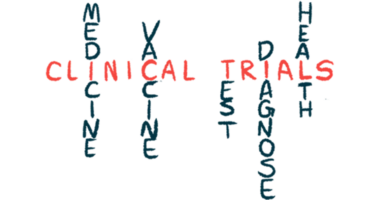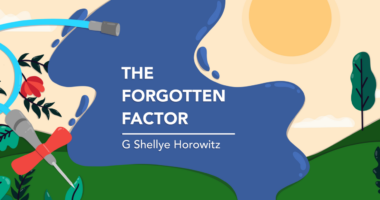Follow-up care: How to discuss difficult doctor appointments
Last updated July 25, 2025, by Cazandra Campos-MacDonald
As a child, one of my favorite quilts made by my grandmother was a green one with a yellow border. At night, I would let the quilt fall over me, covering me from head to toe — giving me a sense of security and comfort as I drifted off to sleep. I want my son, who has hemophilia, to feel that kind of security.
With numerous complications from an inhibitor, including two damaged joints, he has walked out from appointments looking defeated. He wants to have a fix for his pain and limited mobility, but the answers are not what he hopes.
As a caregiver, I will never understand what it feels like to have a bleed or damaged joints from hemophilia. I will not always have the answers, and neither will the doctors.
In those moments, I must meet my son where he is and offer the emotional support he needs.
As caregivers, we not only attend to the logistical needs of our loved ones, but also can help build their resilience, strength, and emotional well-being.
How to handle a tough appointment
Processing a difficult appointment or receiving bad news takes time. Pausing before speaking is a good practice, especially when a delicate matter is at hand.
While you may want to discuss things right away and talk quickly, others may need time. Being overwhelmed and scared can get in the way of communicating.
Provide space for internal processing
Instead of trying to talk through the issue, offer a hug, go for ice cream, or sit and listen to music together. Take some time to be present in the silence. Your presence is often more valuable than words.
Listen for an opening
How do we know when to approach a difficult conversation? Often, the answer lies in how well we’ve listened. Listening is easy, but listening without distraction takes effort.
As caregivers, we notice excitement in our loved one’s tone and inflection. But it’s the quiet moments, the anger, or the withdrawn voice that signals a need to listen more closely. The moments of silence are essential as they allow time to process.
When we give our full attention by putting down our phones, making eye contact, and quieting our thoughts, we create a safe space. In that space, both words and silence guide us to the right moment.
How to have a difficult conversation
When the time is right, try to understand and support the perspective of your loved one about how they thought the appointment went.
Don’t force your perspective on them or discourage them from being honest about their feelings.
Use open-ended questions
When your loved one is ready to talk, start the conversation with questions such as:
- “What’s on your mind?”
- “How are you feeling?”
- “What was that appointment like for you?”
Questions like these avoid simple yes-or-no responses and give them space to reveal the depth of their feelings.
Understand their point of view
Try to understand how they viewed the appointment by asking: “Can you tell me in your own words what the doctor said?”
This question gives you the chance to hear how they interpreted what they were told, because two people may have two entirely different understandings of the same information.
Pay attention to nonverbal communication
When listening to your loved one, watch for what isn’t being said. Are they fidgeting? Biting their nails? Looking away?
The more time you offer them to express their needs, the better chance they have to relax and be comfortable with sharing.
Validate their feelings
Respond with empathy by saying something like: “That seemed like a lot to take in” or “It’s understandable to feel overwhelmed.”
Teaching others to mourn destigmatizes complicated feelings. Even a simple “I’m sorry” is comforting. Reassure them that it’s OK and normal to feel sad, angry, and scared. It’s valid to struggle. These realizations build strength and resilience.
Envision the next steps together
Help your loved one find ways to move forward. Come up with ways together to take action toward what is controllable.
How to offer ongoing support
The emotional impact of a single appointment can last for days or weeks. Others may have moved on while your loved one has not. Be aware of their feelings and acknowledge the depth of their struggle.
Continue to check in and offer support. Providing ongoing emotional support can enhance their mental well-being. If your loved one needs more than what you can provide, seek professional help.
Caring for a loved one has moments of joy and despair. Being present in the joy is thrilling. However, being present in the moments when grief and sadness are overwhelming can be equally fulfilling. Caregivers have the privilege of helping their loved ones thrive in both joy and sorrow.
Just as my grandmother’s quilt once wrapped me in warmth and security, caregiving for my sons with hemophilia has become my way of offering that same comfort, transforming the weight of grief and helplessness into steadfast emotional support.
Note: Hemophilia News Today is strictly a news and information website about the disease. It does not provide medical advice, diagnosis, or treatment. This content is not intended to be a substitute for professional medical advice, diagnosis, or treatment. Always seek the advice of your physician or another qualified health provider with any questions you may have regarding a medical condition. Never disregard professional medical advice or delay in seeking it because of something you have read on this website. The opinions expressed in this column are not those of Hemophilia News Today or its parent company, Bionews, and are intended to spark discussion about issues pertaining to hemophilia.
Recent Posts
- Gene therapy can help reduce joint bleeds in hemophilia B: New data
- For women with hemophilia, progress is slow but tangible
- Managing hemophilia looks different now that we’re in our 30s
- Hemophilia, pecan trees, and a lesson about being on autopilot
- I feel validated after finally receiving a diagnosis I’d fought for





